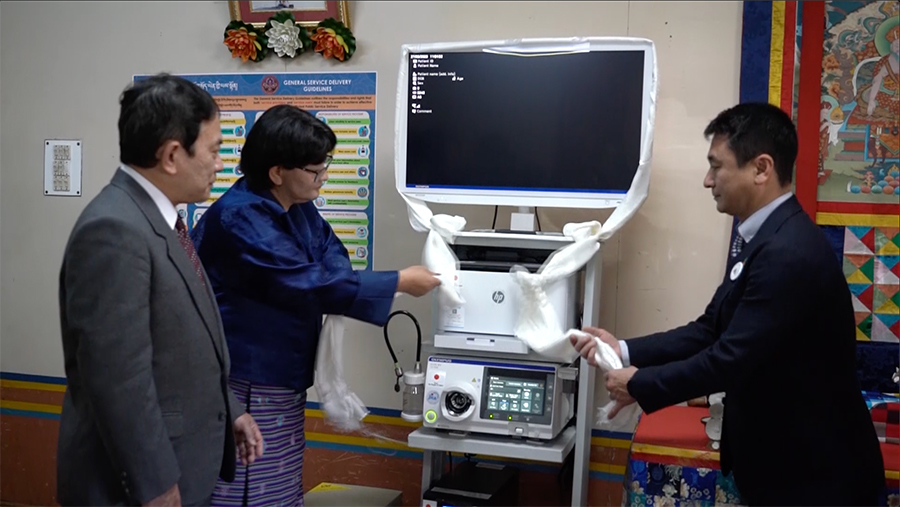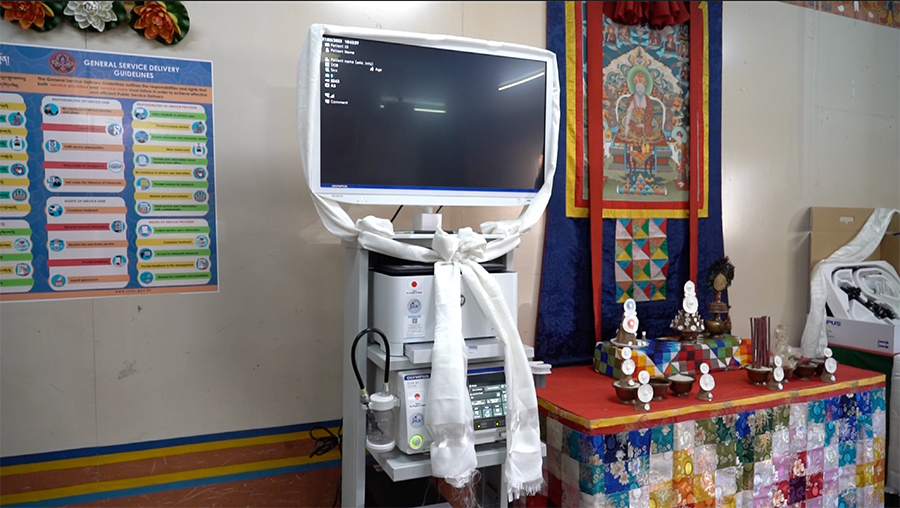
The National Referral hospital will now be able to detect gastric cancer and treat it at the earliest. The hospital has received an advanced endoscopy machine. The Japan International Cooperation Agency and Japan Agency for Medical Research and Development handed over the high-end endoscopy machine along with complete accessories to the hospital today.
 Oita University handed over the high-end endoscopy machine worth about 95 thousand US dollars along with the web conferencing machine worth about 2,700 US dollars to the National Referral hospital. Through the web conferencing machine, the doctors will be able to communicate Live with the professors in Japan.
Oita University handed over the high-end endoscopy machine worth about 95 thousand US dollars along with the web conferencing machine worth about 2,700 US dollars to the National Referral hospital. Through the web conferencing machine, the doctors will be able to communicate Live with the professors in Japan.
This is part of the Science and Technology Partnership for Sustainable Development project supported by JICA and the Japan Agency for Medical Research and Development. The Khesar Gyalpo University of Medical Sciences of Bhutan and Oita University launched the project in August last year.
The project aims to eliminate helicobacter pylori-related deaths in Bhutan by building institutional capacity.
Further, the five-year project worth about 3.3 million US dollars aims to enhance the endoscopy skills of Bhutanese doctors by providing high-end equipment and training.
‘‘It will also help us to see how deep cancer cut through the stomach lining and the extent of the spread of cancer within the walls of the stomach. With all those new features, it will help endoscopists in Bhutan to detect early gastric cancer more easily and confidently. Now we can also do surgery with this endoscopy machine to remove gastric cancer without opening the abdomen and doing surgery. So, not only there will be a change in diagnosis, the whole treatment of early gastric cancer will change after endoscopists are fully trained in operating all these new machines,” said Dr Guru Prasad Dhakal, a gastroenterologist.
The project will also establish a rapid diagnosis kit production facility for H. pylori at the Royal Centre for Disease Control, develop research capacity on gastric cancer, and conduct a community-based study on awareness of H. pylori and associated gastric cancer prevention measures.
‘‘These kinds of exchange programs are wonderful initiatives. This will ensure that our health workers are at par with global standards and they will able to be trained the younger generations that are coming up. A project like this contributes to building institutions and institutions are important for the sustainability of the program. So, it involves a program and then eventually it will help to build the institutions and institutions will remain forever,” said the health minister Dechen Wangmo.
Currently, the health ministry has carried out cancer screening programmes for almost 90 per cent of the population in the country.
Similarly, JICA handed over eight laundry machines to the Ministry of Education and Skills Development today. The machines will be given to eight special needs schools in the country.
The machines are worth about Nu 300,000. Despite some SEN schools providing life skills such as laundry, tailoring, cooking, and arts & crafts, they do not have the required equipment. The new laundry machines will aid learning environment in the eight SEN schools.
Karma Wangdi/Tshewang
Edited by Tshering Zam






